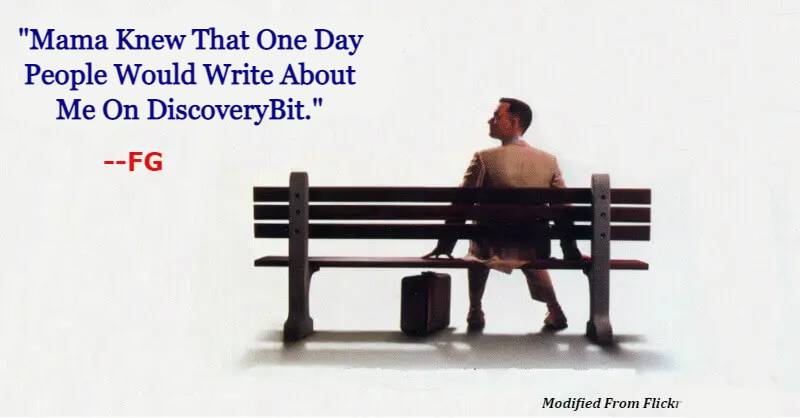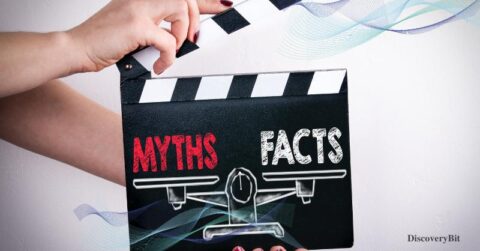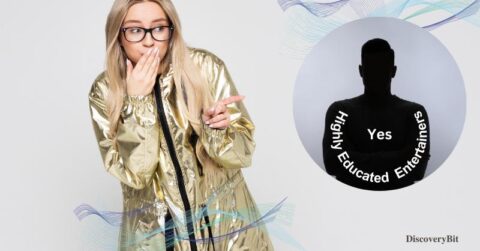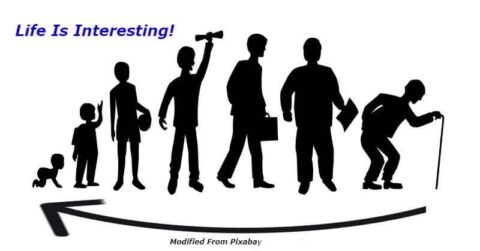Ah, Forrest Gump. A name we all love and recognize and a movie of the ages. Played by Tom Hanks, this loving character told a life story that would change cinema forever, all while sitting on a park bench.
Premiered in 1994, director Robert Zemeckis’ masterpiece would go on to win six Academy Awards including ‘Best Actor in a Leading Role’ Best Picture and ‘Best Director’ to name a few. This bestselling classic was the second highest-grossing movie of 1994, after The Lion King, making it one of the most successful films of its time. Even now, twenty-five years after its initial release, Forrest Gump is a household coming-of-age classic.
Based on the 1986 novel written by Winston Groom, the story tells of a kind-hearted yet simple American man with an IQ of 75, whose story we follow from the 50s through to the 80s.
Growing up in Alabama with only his mom to rely on, Forrest Gump enters the schooling system where he is bullied for the body brace his mom (Sally Field) makes him wear to correct his poor posture. Enter Jenny, who becomes his first and last love. Like a beacon of light, Jenny quickly becomes Forrest Gump’s biggest supporter, his closest friend and his source of inspiration. With her encouragement (“Run Forrest, RUN!”), Forrest Gump quickly discovers he has a natural gift for running, a theme that returns full force later in his life.
From that moment forward, Forrest Gump proceeds to excel in everything he puts his mind to. He is naturally gifted, a satirical take on his mental disability that should slow him down but only adds to his charm. With time, Forrest Gump receives a college football scholarship that was the beginning of a running gag of his good fortune. Though mentally handicapped, Forrest goes on to succeed in everything he did, making close friendships along the way.
The football star becomes an honored veteran after the Vietnam war, who later becomes a Ping-Pong celebrity, a successful shrimp boat owner and then a multi-millionaire (“Gazillionaire,” as Forrest Gump humbly puts it) when Lieutenant Dan, his comrade in war and his business partner, invests in an unknown fruit company called “Apple.” Ah, if only we all had a friend like Lieutenant Dan. At this point, Forrest Gump has become notorious for making and being a part of American history.
The movie later makes a full circle when Forrest Gump, distraught after having and then losing Jenny for what seems like the millionth time, Forrest decides to run across America and back. For Forrest Gump, it is a form of meditation, a way to think. To the public, he has become a national hero! People are rooting for this delightful character and even joining him on his cross-country jog.
Forrest Gump continues running for over three years, accidentally creating the popular smiley face and “Shit Happens” slogan. While running, his impression on American history continues as he stands next to George Wallace, meets John Lennon while appearing on The Dick Cavett show and teaches Elvis his signature hip twist. Forrest Gump also meets President Nixon in a comedic reference to Watergate and is quite convincingly edited into old, black and white shots in the White House, shaking John F. Kennedy’s hand while simultaneously telling the President of the United States “I gotta pee” when asked how he feels about being an “All American.”
While Forrest Gump explores American culture, his love interest, Jenny (Robin Wright), goes on a darker life journey of the counterculture, falling victim to abuse and drugs. In contrast to the uplifting, comedic, coming-of-age story, Jenny’s life has left her desperate to experience cheap thrills and she goes on a self-destructive path that leaves her falling prey to every fad of the film’s era.
A) What are some of the FAQs on the Forrest Gump Movie?
| Answer |
B) Who are the contributors to this post?
| Answer |
What do I like the most about the Forrest Gump movie?
Forrest Gump’s simplicity and his good-natured approach to life give him confidence and strength I wish was more present in my own life. In my humble opinion, that’s the best part of this movie! Forrest’s many life adventures and experiences have you relating to his story at least once, so you can’t help but fall in love with the goofy guy.
Do I think that people like and can relate to the movie?
Many, including myself, even felt some semblance of connection with Jenny, which wasn’t the greatest epiphany I’ve ever had. Jenny symbolizes the worst in us. The craving for basic human affection, the need to be seen and heard, the desire to be accepted by your peers. Although Jenny takes her obsession too far, I could argue that she symbolizes the struggle and inner turmoil most feel transitioning through the many stages of life. Whether you relate to Forrest Gump’s optimistic, easy-going and relentless persona, Jenny’s pessimistic, doubtful and destructive behavior, or any character in-between, everyone has a place in this movie.
Folks love this movie for its exceptional soundtrack and beautifully shot scenes. One such scene took place in Washington when Forrest Gump and Jenny reunite. Forrest hears his name being called and then realizes its Jenny, who proceeds to jump into the fountain and awkwardly run through the water, breaking the stillness of its surface. They run towards each other and hug while the crowd erupts in applause.
As corny as the scene is, it is also full of emotion and you can see the stark differences in their appearances. Forrest Gump, a decorated war hero, is dressed smartly in a beautifully adorned suit. Jenny, in comparison, is dressed like a hippie, a popular fad at the time. Her flowing, organic, colorful clothes make for a beautiful contrast to Forrest Gump’s intense, dark attire. Aesthetic scenes such as this, coupled with the exceptional soundtrack (which sold over 12 million copies!), are a major reason why the movie is such a hit with the audience.
What do I dislike the most about the movie?
Although there are countless reasons to love the movie, I’d say the only thing I dislike (and many would probably agree) is how unfortunate Forrest Gump’s life is. Some may argue that his life experiences are what makes him who he is and the reason for the movie’s success, but viewers will agree that Forrest’s loveable nature makes us all root for him. Go, Forrest, GO!
But with each traumatic and disheartening situation, Forrest Gump faces, it hits us right in the heart. The love of his life is broken and confused, and he loses her countless times. He loses loved ones along the way, such as his best friend, Bubba, to war and his beloved mother to cancer. Forrest Gump is faced with so many stressful situations, which we find ourselves hurting for him and exclaiming (while shaking our fists) “IT’S NOT FAIR.” This point is arguable and leaves viewers wondering how different Forrest Gump would be, had he not faced such struggles. But as Forrest says,
“Life is like a box of chocolates; you never know what you’re gonna get!“
Should Forrest Gump movie have a sequel?
And now the age-old question; to sequel or not to sequel? Does the Forrest Gump story NEED another movie, a further deep dive into the character’s lives? Did Forrest Gump ever find another love? What happened to his and Jenny’s son?
The short answer is a resounding no!
The long answer is that this movie is a classic on its own. It doesn’t need another movie to fix any loose ends, explain what happened next or get into the nitty-gritty details. The Forrest Gump movie was full of lively, interesting characters, various life events that we were lucky enough to go along on, and countless, valuable lessons we learned along the way.
Besides the fact that the Forrest Gump movie is twenty-five years old and has lost its relevance with the younger generation, it also would be completely unnecessary as the movie left us with all the answers we needed. It made a full circle and left the audience feeling satisfied. Ever hear the expression “don’t fix what isn’t broken?” This applies perfectly to Forrest Gump, literally and figuratively.
Forrest Gump has many character traits that make him so loveable and endearing to the audience and, although he has a mental disability, he never lets it stop him from achieving greatness.
What are my takeaways from the movie?
There are many lessons to take away from the Forrest Gump movie which is another reason why it is such a popular film and a fan favorite.
The most obvious takeaway is simple; don’t be afraid to love and, in equal measure, don’t be afraid to lose. Forrest Gump, although described as “simple” and “slow”, felt emotions with all of his being. He felt pride when he became a football superstar, fear when he went to Vietnam, sadness when he lost Bubba and absolute dread when he lost his dear mama to cancer.
Having a disability did not make him feel any less of a person, but in fact, his emotions were always visible; more so than the average person. Forrest Gump wore his heart on his sleeve and the emotion he most easily portrayed throughout the movie was love. He loved Jenny his whole life, never once considering that there may be a woman kinder, wiser and better suited for Forrest Gump’s extraordinary life. He never faulted Jenny or felt any regret, even when Jenny got sick and died.
Forrest Gump loved his mother, whom he took care of. He loved Bubba and, after his untimely death fighting for his country in Vietnam, Forrest made it his goal to fulfill Bubba’s one wish: own a shrimping boat. He loved Lieutenant Dan, who begged Forrest to leave him to die in war, like all of his ancestors before him. Forrest Gump, instead of listening to his friend’s wishes, did what he thought was right and saved his life, which earned him a Medal of Honor. Lieutenant Dan later joined Forrest Gump on his adventures and even found true love. Although Forrest lost many friends along the way, he kept charging through life, doing what he knew best: loving.
Another great take-away from this movie is to always stay positive and give back to others. After Lieutenant Dan invested in Apple, earning them both a fortune, Forrest Gump felt the need to give back to his community. He continued mowing grass, even when he could have hired someone to do it for him. He enjoyed it immensely and never paid anyone any mind. Forrest Gump did what he thought was right and stuck on that moral path the whole movie.
“There’s only so much fortune a man needs, and the rest is just for showing off.”
This was Forrest Gump’s mentality and philosophy throughout the movie. He never felt like the world owed him something for being disabled or did anything out of spite and anger. He was always a gentleman, helping those in need. After earning his fortune, Forrest Gump gave a very generous donation to Foursquare Gospel Church and a fishing hospital. He then went one step further; giving Bubba’s share of the shrimping boat profits to Bubba’s mother which in turn changed her life. She no longer had to work in anyone’s kitchen, and she catered to no one but herself from that point on.
Forrest Gump felt the importance of sharing and was a source of inspiration to his friends as well as to the audience. The film’s heartwarming life lessons were a major factor in its popularity with kids and adults alike.
And so, we come full circle. A heartfelt movie about a simple boy who can love more than anyone else and had a moral compass that always leads him down the right path. Although the Forrest Gump movie was full of heart-wrenching moments, devastating loss and great sorrow, there was also a balance of genuine happiness and bittersweet love.
A movie for the ages that tells an extraordinary story about a simple, but yet, an equally extraordinary man, who faces negativity and conflict but stands tall (mama would be proud; Forrest Gump was born with a back “As crooked as a politician”) and faces adversity head-on. He loves and loses, makes history (literally), shares his good fortune with the people he loves most and excels in the most important adventure of his life: raising his son.
Forrest Gump is the strongest and wisest man cinema has ever witnessed. May his story continue to inspire all those who take the time to sit down on a park bench and simply listen.
But anyway, these are just my 2 cents. And now, let’s see what these 11 diverse people have to say about the Forrest Gump Movie:
| Melanie Musson | Joseph Flanagan | Jonathan Mendoza | Can Ahtam | Arthur Ruth | Nancy Simpson | Adam Bertocci | Kevin Lockett | Jarrod Miller-Dean | Melissa Franckowiak | Margo Donohue |
1) Melanie Musson
 The charm of the Forrest Gump movie lies in its timeless one-liners, like “Life is like a box of chocolates…” and “I’m not a smart man, but I know what love is.” These phrases seamlessly apply to various life situations, making them universally relatable.
The charm of the Forrest Gump movie lies in its timeless one-liners, like “Life is like a box of chocolates…” and “I’m not a smart man, but I know what love is.” These phrases seamlessly apply to various life situations, making them universally relatable.
Forrest Gump’s complex relationship with Jenny adds a poignant layer to the narrative. The disappointment stems from her apparent use of him in her final moments rather than embracing a genuine connection from the start. Despite the melancholy, the movie imparts a profound message—your intellectual prowess doesn’t define the impact you can have on others. It advocates doing your best regardless of who you are.
The movie’s popularity is a testament to its relatability. Forrest’s unfiltered emotions resonate deeply with audiences. Even those who struggle to express themselves wish they could articulate feelings as openly as Forrest does.
Some argue against a Forrest Gump sequel, fearing it would pale in comparison to the original, potentially diminishing its brilliance. The beauty of Forrest Gump lies in its standalone brilliance, and attempting to extend the narrative might risk diluting its impact.
2) Joseph Flanagan
 After immersing myself in the Forrest Gump movie, a standout quality of the character that often gets overshadowed is his relentless determination. Amidst discussions about other endearing aspects, Forrest Gump’s unwavering commitment to pursuing his goals shines, creating a fascinating contrast with his simple nature.
After immersing myself in the Forrest Gump movie, a standout quality of the character that often gets overshadowed is his relentless determination. Amidst discussions about other endearing aspects, Forrest Gump’s unwavering commitment to pursuing his goals shines, creating a fascinating contrast with his simple nature.
Yet, a tinge of disappointment creeps in as I reflect on the sheer luck that propels many of his achievements. While his tenacity is admirable, the prevalence of happenstance can be disheartening.
The Forrest Gump movie, for me, serves as a profound lesson—whatever you undertake, do it with precision, and it can open doors. This nugget of wisdom, gleaned from the narrative, adds depth to the character’s journey.
However, the movie’s relatability is a point of contention. The extensive reliance on luck may alienate some viewers, challenging the notion that everyone can connect with Forrest’s experiences.
In my perspective, the Forrest Gump movie stands as a cinematic masterpiece. The thought of a sequel raises concerns; there’s a risk it could fall flat, becoming a mere repetition and diluting the brilliance of the original.
3) Jonathan Mendoza
 Reflecting on my love for the Forrest Gump movie, I’m captivated by its unfiltered honesty. The narrative unfolds from a pure perspective, brimming with heart, and manages to portray the reality of Forrest’s life without overemphasizing it—a delicate balance that contributes to its timeless appeal.
Reflecting on my love for the Forrest Gump movie, I’m captivated by its unfiltered honesty. The narrative unfolds from a pure perspective, brimming with heart, and manages to portray the reality of Forrest’s life without overemphasizing it—a delicate balance that contributes to its timeless appeal.
Strikingly, I can’t pinpoint anything I dislike about the Forrest Gump movie. It seems to weave a flawless tapestry that resonates universally with audiences.
The movie’s profound message, encapsulated in “Life is like a box of chocolates,” has become a guiding principle in my life. Embracing the unpredictability of existence, I carry the belief that every twist, no matter how unexpected, ultimately leads to something sweet.
Forrest Gump’s relatability is undeniable. Whether it’s the heartbreak or the hardships he endures, there’s a universal element in the movie that connects with every viewer on a personal level.
The notion of a Forrest Gump sequel raises skepticism in my mind. The movie’s greatness lies in its current form, and attempting to extend the story might dilute its impact and jeopardize the integrity of the original narrative. Some tales are best left untouched, and Forrest Gump is undoubtedly one of them
4) Can Ahtam
 Being an avid fan of Tom Hanks and the timeless character Forrest Gump, I find myself revisiting the movie multiple times a year, uncovering new insights with each viewing:
Being an avid fan of Tom Hanks and the timeless character Forrest Gump, I find myself revisiting the movie multiple times a year, uncovering new insights with each viewing:
A) The Forrest Gump movie serves as both motivation and a source of joy, illustrating how opportunities can shape our lives. It resonates with the idea that recognizing and maximizing these opportunities is key to personal growth. Amidst Forrest’s ups and downs, his unwavering passion for Jenny remains a constant thread, a testament to enduring love throughout life’s journey.
B) Jenny’s tumultuous journey evokes mixed emotions. Her unfortunate luck, in contrast to Forrest’s innocence, adds a poignant layer to the narrative. The bittersweet conclusion, with a hopeful yet heartbreaking finale, encapsulates the movie’s ability to navigate through the complexities of life.
C) The Forrest Gump movies, for me, underscore the importance of seizing every moment and opportunity, avoiding the regret of unexplored paths. It imparts a timeless lesson: life is a continuous process, and obstacles should never impede progress.
D) The relatability of Forrest Gump lies in its seamless integration of major historical events, mirroring real-life experiences. Forrest’s differences are transcended as he navigates these significant moments, making him a character that resonates with the collective human experience.
E) Hollywood should resist the urge to force a Forrest Gump sequel. The movie’s thoughtful narrative, infused with genuine heart and soul, stands as a meticulously crafted piece of cinema. Not every story needs continuation, and Forrest Gump remains a testament to the power of a singular, well-planned narrative
5) Arthur Ruth
 Being both a devoted movie buff and a fan of the Forrest Gump movie, here’s my perspective on this cinematic gem:
Being both a devoted movie buff and a fan of the Forrest Gump movie, here’s my perspective on this cinematic gem:
A) The movie’s brilliance lies in its wonderful and wholesome script, eliciting genuine emotions. As a dedicated movie enthusiast, Forrest Gump stands out among films that have the power to evoke tears, showcasing the magic of storytelling.
B) While enamored, there’s a slight disdain for instances where the movie ventures too far into fantasy, potentially diluting the authentic emotions intended by Zemeckis. Balancing fantasy with the genuine essence of Forrest’s story is crucial for maintaining the intended impact.
C) Forrest Gump’s universal appeal is evident in its relatability. The narrative, centered around overcoming societal expectations, resonates with everyone who has been told they couldn’t achieve something, only to prove otherwise. It taps into a collective human experience.
D) The notion of a Forrest Gump sequel sparks hesitation. Remaking classics often proves challenging, with more missteps than successes. Preserving the integrity of timeless movies like Forrest Gump is crucial; the emphasis should be on cultivating fresh, imaginative stories rather than revisiting established classics. Let the classics stand, and let our creativity pave the way for new cinematic greatness
6) Nancy Simpson
 The Forrest Gump movie resonated with me primarily due to its powerful lessons on love, kindness, and navigating challenging situations. The storyline, woven with these profound themes, left a lasting impact, showcasing the transformative journey of its iconic characters.
The Forrest Gump movie resonated with me primarily due to its powerful lessons on love, kindness, and navigating challenging situations. The storyline, woven with these profound themes, left a lasting impact, showcasing the transformative journey of its iconic characters.
However, one aspect I vehemently disliked was the heartbreaking moment of Bubba’s demise. The abrupt end to such a beloved character left a lingering sense of loss, a punctuation mark of sorrow in an otherwise poignant narrative.
Jenny’s storyline emerges as a poignant focal point, potentially striking a chord with many. Her struggles, stemming from a tumultuous past, echo the battles faced by individuals confronting the ghosts of abuse. It’s a relatable narrative that transcends the screen, reflecting real-world experiences.
The idea of a Forrest Gump sequel is met with reluctance. The legacy of Bubba Gump and the unresolved threads left by Jenny’s passing are part of the movie’s poignant charm. Attempting a sequel could risk tarnishing the near-perfect essence of the original. Some stories are best left untouched, and in the case of Forrest Gump, I believe a sequel is unnecessary—I’m content with the cinematic brilliance it already offers
7) Adam Bertocci
 Delving into my reflections on the Forrest Gump movie, a cinematic journey that unfolds through the lens of historical epochs:
Delving into my reflections on the Forrest Gump movie, a cinematic journey that unfolds through the lens of historical epochs:
A) What captivates me about this Forrest Gump movie is its unique perspective on historical times, navigating the sixties and seventies with a focus on personal connections rather than the frisson of recognition or nostalgia. Forrest Gump, living through history, captures our hearts not just with amusing encounters with important figures but also with gut-wrenching moments like burying Jenny, emphasizing the power of personal narratives over historical events.
B) Reflecting on the film’s treatment of Jenny, a nuanced concern surfaces. The narrative seems to somewhat penalize her for her choices, leaving one to ponder if Jenny’s countercultural escapades could have been portrayed as a picaresque equal to Forrest’s, blending both good and bad before settling down.
C) The movie’s ultimate takeaway, embodied in Forrest’s contemplation of destiny, resonates deeply. Whether we follow a predetermined path or drift like feathers in the breeze remains an imponderable, but Forrest Gump finds his truth—a revelation that emphasizes the joyous exploration of life.
D) The movie’s success suggests a universal connection, yet the question lingers—do people relate more to Forrest Gump’s personal journey or to the memory of the times he lived through? As time evolves, future generations may view the movie with a different perspective, unburdened by the weight of the sixties and seventies.
E) Acknowledging Winston Groom’s sequel, I perceive the Forrest Gump movie and the book as distinct entities. The prospect of Forrest navigating the ’80s-2010s doesn’t enthrall me. Having lived through those decades, I resist the need for a cinematic reminder of their magic or lack thereof. Perhaps, like Forrest, I am inadvertently blind to their significance
8) Kevin Lockett
 A distinctive takeaway from the Forrest Gump Movie lies in the remarkable relationship between Forrest and Bubba—an extraordinary bond transcending differences of race, background, and upbringing. These two men, originating from diverse places and cultures, forge a connection that defies societal norms.
A distinctive takeaway from the Forrest Gump Movie lies in the remarkable relationship between Forrest and Bubba—an extraordinary bond transcending differences of race, background, and upbringing. These two men, originating from diverse places and cultures, forge a connection that defies societal norms.
In a world where people often perceive African-Americans and minorities as fundamentally different, the Forrest Gump Movie serves as a poignant reminder that, beneath surface distinctions, we all share common aspirations. Despite cultural nuances, the universal desire for a fulfilling life unites us.
Forrest Gump’s childlike perspective embodies a profound wisdom, akin to how a white child views a Black child—he simply sees another person. The innocence in Forrest’s outlook underscores a lesson for adults, urging them to embrace a similar wisdom when navigating the complexities of race. In a society marked by cultural diversity, Forrest Gump’s approach becomes a beacon, advocating for a perspective that goes beyond external differences, fostering genuine connections rooted in shared humanity
9) Jarrod Miller-Dean
 Exploring the Forrest Gump movies, my sentiments oscillate between admiration and reservation:
Exploring the Forrest Gump movies, my sentiments oscillate between admiration and reservation:
A) What resonates most with me is the inspirational essence of the Forest Gump movies. The narrative transcends individual circumstances, proclaiming that anyone, regardless of background or challenges, can achieve greatness through dreams and decisive action.
B) On the flip side, my dissatisfaction stems from the near-perfection of Forrest Gump’s character. His good-hearted nature, coupled with naivete and disability, creates a protagonist almost faultlessly ideal. The film, at times, feels like a highlights reel, where setbacks are sporadic, challenging the authenticity of the journey.
C) The Forrest Gump movie leaves me with a profound takeaway—to strive for excellence, exhibit resilience, and embrace continuous forward motion. Forrest’s unwavering commitment to doing his best becomes a guiding principle for personal growth.
D) The relatability of the film is a dual-edged concept. On one hand, people connect with the universal desire to excel and approach life with sincerity. On the other hand, Forrest’s distinctive perspective, whether shaped by disability or naivete, sets him apart, emphasizing the beauty of diversity in our individual lenses.
E) The notion of a sequel is met with skepticism. Over 15 years since the original, the timing renders a sequel irrelevant. Forrest Gump stands as a timeless classic, and not every cinematic masterpiece should be subjected to sequels or remakes. Some stories, like Forrest’s, are meant to endure without unnecessary continuation
10) Melissa Franckowiak
 Forrest Gump stands as a cinematic masterpiece, potentially the pinnacle of filmmaking. Its portrayal of American history intertwines poignancy with humor, offering a unique perspective through the eyes of an American boy.
Forrest Gump stands as a cinematic masterpiece, potentially the pinnacle of filmmaking. Its portrayal of American history intertwines poignancy with humor, offering a unique perspective through the eyes of an American boy.
Embracing Americana unapologetically, the Forrest Gump movie retains an essence of innocence reminiscent of childhood even as its titular character grows. This innocence becomes the lens through which every observation is filtered, adding a nostalgic charm to the narrative.
One commendable aspect is the movie’s depiction of the military as true heroes, avoiding the lip service that diminishes their significance. The film stands firm against individuals like Jane Fonda, refusing to excuse ignorance and disdain for the country. Forrest embodies the spirit of America, a sentiment that transcends Tom Hanks’ portrayal.
As for a Forrest Gump movie sequel, the proposition hinges on Hollywood’s ability to infuse patriotism into their narratives. The call is for a creation that doesn’t apologize for the diversity within its audience—a challenging task that requires a shift in perspective from those involved in its making.
11) Margo Donohue
 As a dedicated enthusiast of the Forrest Gump movie, its unparalleled ability to unabashedly explore human emotions and vulnerability captivates me. The film’s openness and willingness to delve into the complexities of frailty and sentimentality create a unique and enduring charm.
As a dedicated enthusiast of the Forrest Gump movie, its unparalleled ability to unabashedly explore human emotions and vulnerability captivates me. The film’s openness and willingness to delve into the complexities of frailty and sentimentality create a unique and enduring charm.
Yet, confronted with the question of what irks me most about the Forrest Gump movie, the John Lennon cameo stands out. Unlike other celebrity appearances seamlessly integrated into the narrative, Lennon’s feels somewhat artificial. Despite this, its presence remains indispensable, serving as a conduit to introduce Lt. Dan in the vibrant backdrop of NYC.
The paramount lesson gleaned from the Forrest Gump movie is the acceptance of vulnerability and the importance of love. The narrative champions the idea that expressing genuine emotions is not a weakness but a strength.
While acknowledging that the film might not resonate equally with everyone, I find solace in its sincerity. Despite perceptions of schmaltziness, the Forrest Gump movie, to me, remains an endearing exploration of the human experience.
On the subject of a sequel, my stance aligns with the sentiment that it should never materialize. The darker tone of the sequel to the novel diverges from the uplifting essence of the original, compromising the fun and charm that defines Forrest Gump
Frequently Asked Questions
A) Who played Forrest Gump?
| Answer |
B) Who wrote Forrest Gump?
| Answer |
C) Who directed the Forrest Gump movie?
| Answer |
D) Should Forest Gump movie have A Sequel?
| Answer |
Tags: actors in forrest gump bubba from forrest gump director forrest gump Does Forrest Gump Movie Deserve A Sequel Forrest forrest gump bubba forrest gump character forrest gump chocolate forrest gump jenny forrest gump lieutenant dan forrest gump life is like a box of chocolates forrest gump picture forrest gump review forrest gump running quote forrest gump summary forrest gump tom hanks forrest gump trailer is there going to be a sequel to forrest gump Keywords: Forrest Gump Movie quotes forrest gump Tom Hanks in forrest gump character when did forrest gump come out who is jenny in forrest gump Who Played Forrest Gump?











